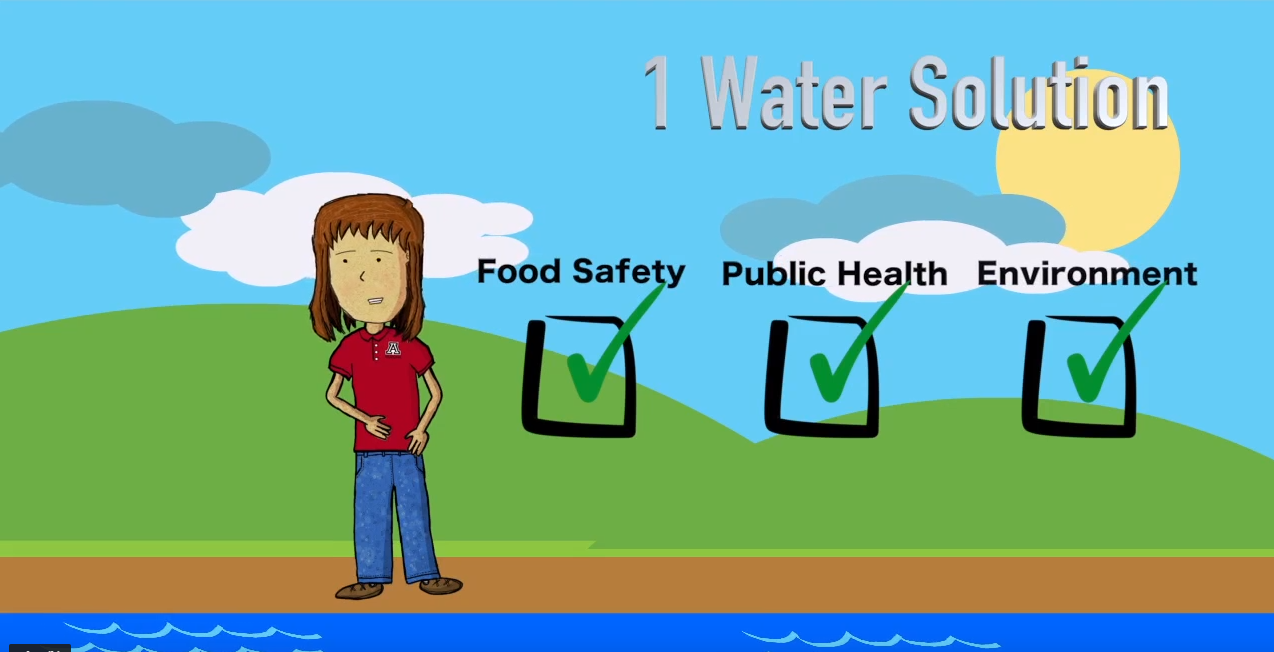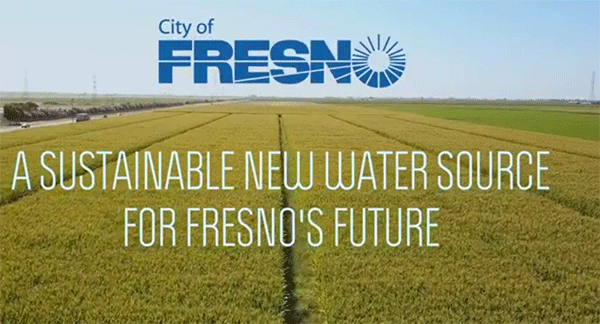DID YOU KNOW?
U.S. growers have been irrigating with recycled water for nearly 40 years!
Credit: aquaoperations.com
“The United States uses 587.76 million gallons of recycled water per day for agricultural irrigation and this number is on an upward trend.”
But what does water reuse, or water recycling, mean?
Water reuse is the process of treating domestic or municipal wastewater, grey water, return flows and tail water, produced water, brackish water, and others, for specific uses, like the irrigation of crops, before it reenters the natural water cycle.
How long has water reuse been employed?
Water reuse has been employed for many years in commercial, industrial, agricultural, and drinking water processes. California and Florida have been using recycled water in agriculture for over 40 years and are the top producers of recycled water in the U.S.
Israel, a leader in water reuse in arid climates, has used recycled water for agricultural irrigation since the 1970s. Today, Israel recycles 90% of its wastewater. A staggering 85% of this water is used in agriculture each year. Spain, the nation with the next highest wastewater recycling rate, reuses about 20% of its water and applies nearly 71% of it on agriculture.
These examples are just a tiny part of the reclaimed water story. Australia, China, Greece, Italy, Kuwait, Mexico, Singapore, several African nations, and other countries safely and effectively use recycled water as a management strategy for agricultural production anddrinking water.
Agriculture irrigation is the oldest practice of water reuse. Depending on the type of crop being irrigated, recycled water requires a high level of treatment, such as secondary, tertiary, or advanced treatment, resulting in a high quality of water. Watch this video to learn about nontraditional sources, such as recycled or reclaimed water, brackish water, return flows, and advanced treated waters, and how they are used for the safe use of irrigating food crops.
California has been using recycled water for crop irrigation for years. In this short commercial, one grower shares his story on the importance of finding new sources of high quality water to sustain food production in times of drought.
BENEFITS OF WATER REUSE IN AGRICULTURE
Using recycled water, or nontraditional water sources,in agriculture has many benefits! But how do these sources compare to more traditional ones?
Cost Effective: Water recycling can be less financially straining in the long-term. As groundwater is depleted, the costs and energy associated with pumping increases as well, as it requires more energy to drive the pumps. Recycling water can help save money over time.
Energy Saving: Water & energy are intricately linked. Water is used to create energy, and energy is required to collect, clean, and distribute water. In addition, different end uses require different levels of water quality. Reusing water and treating it for its intended use saves energy.
Locally Sourced and Controlled: When water is recycled, communities in arid regions no longer need to import water. In California, the Irvine Ranch Water District and the City of Santa Rosa have both used reclaimed water to irrigate lettuce, strawberries, grapes, and other row crops for more than 30 years. Together, they use 1.8 billion gallons per hundred acres of reused, local water to irrigate crops.
Dependable and Reliable: As populations increase, urban wastewater also increases. Water recycling allows a constant, reliable supply of fresh water that does not depend on environmental factors or pumping restrictions. When the City of Modesto, CA built a piple to supply wastewater for irrigation and wetlands, the San Joaquin Valley received 25% more water than their usual allocation.
Eco-conscious: Reusing water saves resources, reduces pollution to sensitive water bodies, and helps create riparian areas. In Idaho, 92% of their 6.5 billion gallons of recycled water is now used to irrigate crops, which keeps 2000 tons of nitrogen and 500 tons of phosphorous out of rivers and streams.
Safe: State and federal regulations establish stringent standards for water quality and public health purposes.Forty-three states have regulations on processing reclaimed water for irrigating crops specific to whether the products will be consumed by humans. These regulations include rigorous microbiological and chemical testing.
Is Water REuse safe for the irrigation of food crops?
Strict guidelines and regulations are followed to ensure the protection of public health. For example, in California and Arizona, leafy green crops are held to strict food safety guidelines by the Leafy Greens Marketing Agreement (LGMA) that includes extensive testing on water and soil, along with other requirements to ensure the safety of food. Soon, all irrigation waters will be held to higher standards due to the new FDA Food Safety Modernization Act’s Food Safety Rule.
Through years of testing and analysis, the safety of recycled water for use on agriculture has been determined to be comparable to other sources of water and is safe for humans and the environment. Recycled water gets treated to meet standards based on end use, and its quality can often be higher than that of traditional sources, such as surface waters, which are exposed to a variety of pollution sources.
WHY should we invest in water reuse?
The U.S. can preserve water resources for future generations whilesaving money, generating revenue, creating jobs,supporting global internet traffic, and contributing to tourism and recreation. Water reuse projects have played a role in developingsome of America’s favorite recreations, such as football, golf, and skiing.
LINKS:
Videos
Protecting AZ’s Water Supply, Water Reuse in Ag: https://youtu.be/evUFPj_-mh0
City of Fresno: A Sustainable New Water Source for Fresno’s Future: https://youtu.be/wQROJicTAcg
Websites
Leafy Green Marketing Agreement: https://www.lgma.ca.gov/
Photo credits
3rd graders with snap peas: with permission from Max Crain from Our Neighbors Farm & Pantry.




